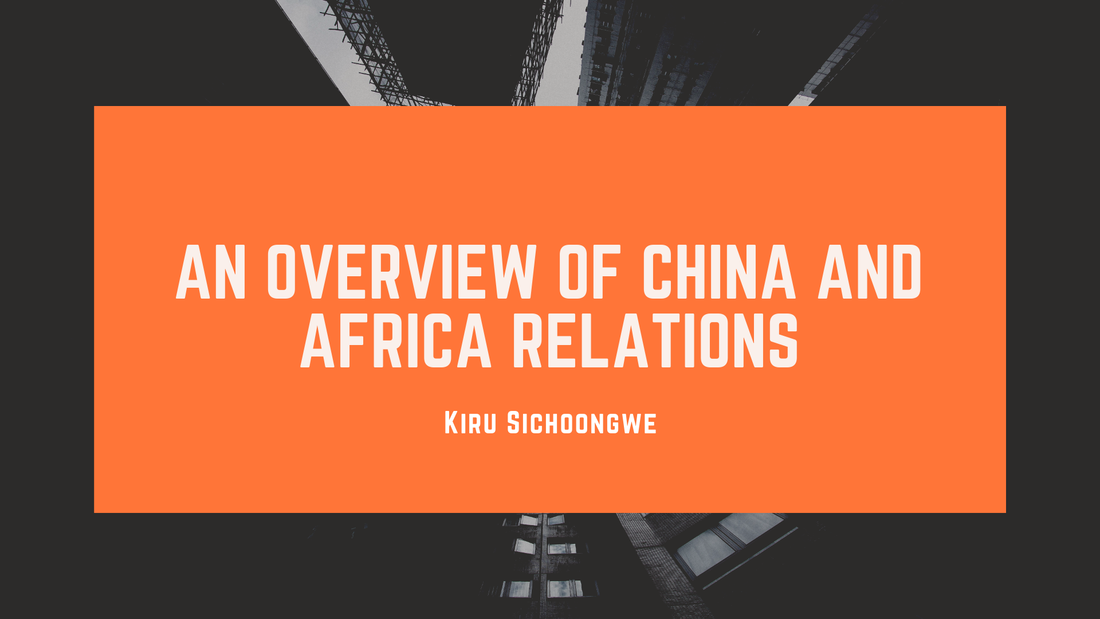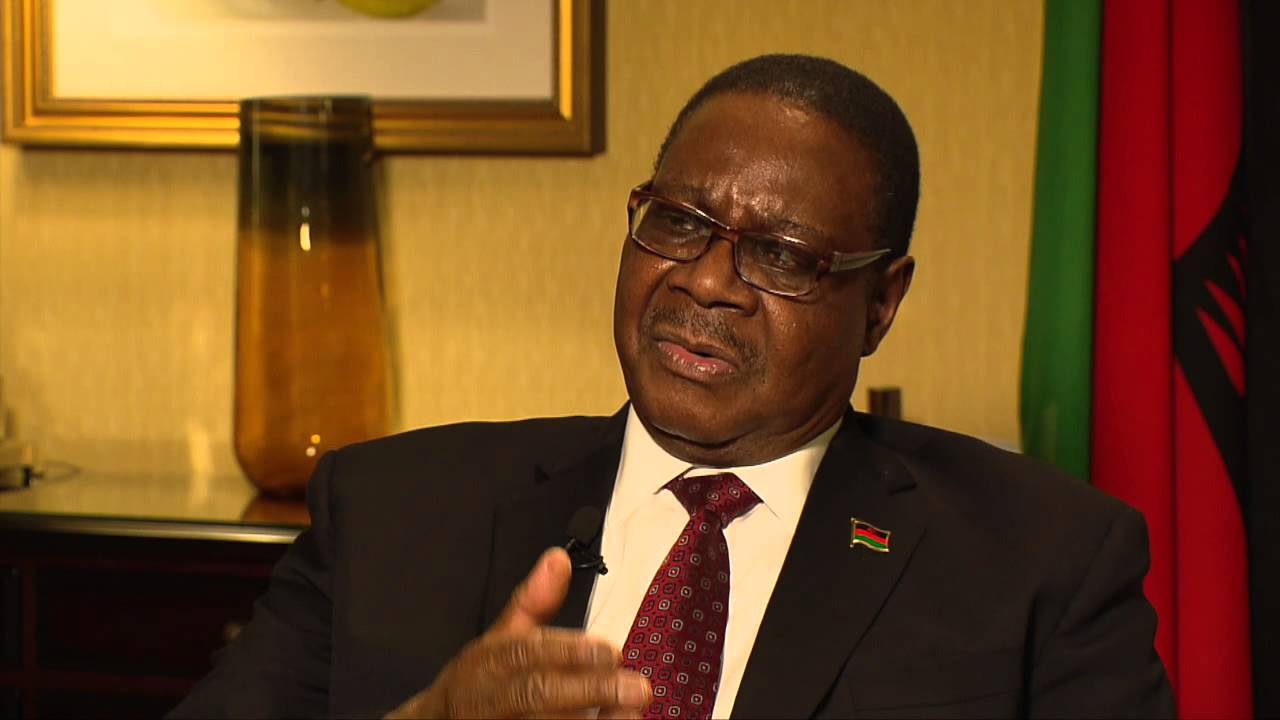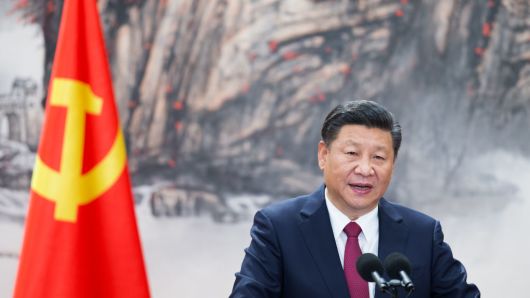ECONOMICS STUDY CENTER, UNIVERSITY OF DHAKA
|
Kiru Sichoongwe A historic overview of how the relations between Africa and China evolved over the years explains why Zambia should rally behind the Asian economic powerhouse. Sino-Africa political relationship dates back many decades, even though economic relationships between China and Africa have only surged since 2000. In 1971 when China regained its seat at the United Nations, it was as a result of the strong vote of African nations that favoured China thereby ending their diplomatic ties with Taiwan. During the 1980s and 1990s when China was undergoing extensive economic reform and opening up its economy to the rest of world, Sino-African relations were still mainly political. In the late 1990s, policy makers realized that in order to sustain China's high-level growth performance and its industrialization, the country needed to ensure its future supply of natural resources. As part of this effort, China turned to Africa. According to opinion surveys, China's influence as well as its contributions to the continent's development is viewed favourably by most respondents in African countries. A 2016 poll conducted in thirty-six countries by a Pan-African research network, Afrobarometer shows that on average, 63% of Africans view China's political and economic influence as "somewhat" or "very" positive. The benefits of Chinese investment to support growth in African countries, has been hailed by many African leaders. In September 2018, at the University of International Business and Economics (UIBE), President Professor Peter A. Mutharika of Malawi said, 'We come to China to learn our lessons. China's history is a great lesson to Africa, The inspiring history of China shows it is possible for an African country to move from poverty to prosperity. ' For years, China has had a strong presence in Africa. Chinese foreign direct investment (FDI) to the continent has increased enormously in recent years. In 2003, China's total outward FDI to Africa stood at US$ 74.8 million. In 2005 it reached $1.6 billion (UNCTAD, 2007). By the end of 2011 this had increased to $16 billion (UNCTAD, 2013). A report on Africa Attractiveness by Ernst & Young, does show that China's investment in Africa has increased dramatically, making the country the single largest contributor of FDI capital and jobs in Africa in 2016. Further, the report said that since 2005, China has invested in 293 FDI projects in Africa, totalling an investment outlay of 66.4 billion U.S. dollars and creating 130,750 jobs. The report also notes that in 2016, jobs created from Chinese FDI projects hit an all-time high, more than double the number in 2015 and more than three times the number of jobs created by the next biggest investor, the United States. This highlights the job-creating impact of Chinese FDI on Africa. Bilateral trade between China and many African countries, have grown rapidly during the last decade, accompanied by major inflow of Chinese enterprises on the African continent. Currently, China is Africa's largest trading partner. It surpassed the United States as Africa's largest trade partner in 2009. The trade volume between China and Africa increased from a tune of US $10.6 billion in 2000 to a tune of US $166 billion in 2011. In more than 50 African countries, over 2000 Chinese enterprises do business covering a wide range of areas, such as mining, oil production, agricultural production and construction. Africa's exports to China mainly consists of minerals, oil, timber and copper. These commodities are needed to fuel the rapid growth in China's manufacturing sector. On the other hand, China's exports to Africa mainly consist of manufactured goods, such as, electronic devices, machines, textiles and clothing. According to the China Africa Research Initiative at Johns Hopkins School of Advanced International Studies in Washington, in 2000, China-Africa trade was a mere $10billion. By 2014, that had risen more than 20-fold to $220billion, though it has fallen back because of lower commodity prices. In 2016, China's exports to Africa stood at 82.9 billion dollars while imports from the continent were valued at 54.3 billion dollars, according to a report on Africa Attractiveness by Ernst & Young. In response to the strong demand for cooperation by African countries, China held the Forum on China-Africa Cooperation (FOCAC) this year with 53 out of 54 African countries represented, except the Kingdom of Eswatini, which still maintains diplomatic relations with Taiwan. The importance of Africa in China's foreign policy culminated in the formation of FOCAC in 2000. The forum has effectively promoted Sino-African relations to a comprehensive, thorough and rapid development phase. People's Republic of China’s President, Xi Jinping, announced at the FOCAC 2018 that: 'China will extend a total of $60 billion of financing to Africa and that China will exempt certain African countries from outstanding debts.' Zambia still stands to benefit from China. For instance, from 2000 to 2011, there were at least 64 Chinese official development finance projects, ranging from the loan to fund Kafue George Lower power project, expanding the Kariba North bank power station near Siavonga, or a $211 million USD debt relief in 2006. In recent years, China and Zambia have signed several bilateral or multilateral trade agreements and agreements on economic and technical cooperation. Since 1967, China undertook 35 aid-projects such as Tanzania-Zambia Railway (TAZARA), roads, maize flour factory, textile mill, well and water supply, among others. References1. UNCTAD (2007) World Investment Report 2007: Transnational Corporations, Extractive Industries and Development. New York and Geneva: United Nations. 2. UNCTAD (2013) Global investment trends monitor: The rise of the BRICS FDI and Africa. New York and Geneva: United Nations.
0 Comments
Leave a Reply. |
Send your articles to: |





